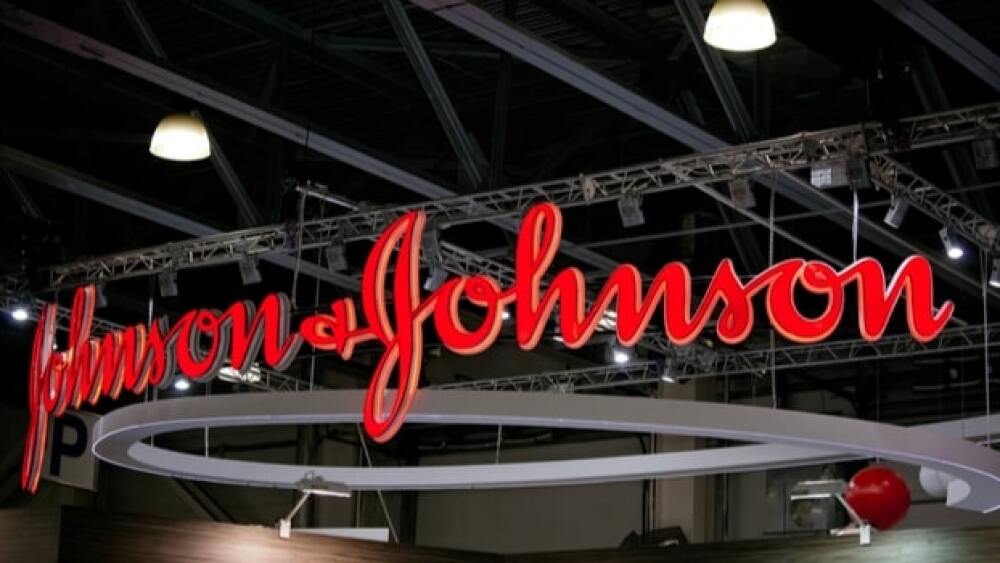J&J did not disclose much information about the unexplained illness, stating, “We must respect this participant’s privacy. We’re also learning more about this participant’s illness, and it’s important to have all the facts before we share additional information.”
Alexander Tolstykh/Shutterstock
Johnson & Johnson paused the clinical trial of its COVID-19 vaccine due to “an unexplained illness in a study participant.”
The company began its Phase III trial of JNJ-78436735 on September 23. The vaccine was developed by J&J’s Janssen Pharmaceutical Companies using its AdVac technology platform, which was also used to develop Janssen’s Ebola vaccine that was approved in Europe and to develop its Zika, RSV, and HIV vaccine candidates. The Phase III ENSEMBLE trial will evaluate the vaccine’s safety and efficacy compared to placebo in up to 60,000 adults ages 18 and older. It is enrolling volunteers in the U.S., Argentina, Brazil, Chile, Colombia, Mexico, Peru and South Africa.
J&J did not disclose much information about the unexplained illness, stating, “We must respect this participant’s privacy. We’re also learning more about this participant’s illness, and it’s important to have all the facts before we share additional information.”
The company also emphasized that adverse events are part of most clinical trials and that this is a “study pause” instead of a “clinical hold,” which is a formal regulatory action. A “clinical hold” can last much longer than a “study pause.” Normally, J&J indicated they would not announce study pauses to the public, but due to the overwhelming interest in the study and the urgency involved because of the COVID-19 pandemic, felt the need to release the information.
Nor is it particularly surprising. The ENSEMBLE study is in 60,000 people, the size of some small cities, and in any population that size, numerous medical events occur on a regular basis.
The COVID-19 vaccine study being conducted by AstraZeneca and the University of Oxford was placed on clinical hold on September 8 after a potential adverse reaction in a UK patient. The patient was believed to have had transverse myelitis, a severe inflammation of the spinal cord. The study has since restarted in the UK and elsewhere, but is still on hold in the U.S.
J&J stated, “Following our guidelines, the participant’s illness is being reviewed and evaluated by the ENSEMBLE independent Data Safety Monitoring Board (DSMB) as well as our internal clinical and safety physicians.”
The company statement added, “Based on our strong commitment to safety, all clinical studies conducted by the Janssen Pharmaceutical Companies of Johnson & Johnson have prespecified guidelines. These ensure our studies may be paused if an unexpected serious adverse event (SAE) that might be related to a vaccine or study drug is reported, so there can be a careful review of all of the medical information before deciding whether to restart the study.”
Ashish Jha, the dean of the Brown University School of Public Health, told CNN, “This is completely expected, and it’s just a reminder how ridiculous it is to try and meet a political timeline of having a vaccine before Nov. 3. The Johnson & Johnson trial is the biggest trial of the vaccine that I know of—60,000 people. Within that trial you’d expect a few pauses.”
Generally speaking, the Johnson & Johnson clinical trial was running about fourth in the U.S. efforts to get a vaccine against COVID-19 ready. Pfizer and Germany-based BioNTech appear to be leading the race, potentially having actionable data by the end of this month. Moderna appears to be next and has recently indicated it will likely be able to apply for emergency use authorization (EUA) with the U.S. Food and Drug Administration (FDA) in November or possibly December. As mentioned earlier, AstraZeneca and the University of Oxford appear to be running third, although it is on clinical hold in the U.S. The Johnson & Johnson program, even before this pause, was unlikely to be ready to apply for EUA sometimes in the first quarter of 2021. Whether they are still able to do so will depend on how long the pause lasts and the results of their investigation into the unexplained illness.
Moncef Slaoui, the head of the U.S. government’s Operation Warp Speed, which is overseeing U.S. vaccine production, recently indicated he thought the first EUA for a vaccine would probably be around Thanksgiving.





